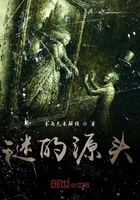I was astonished! The great man began to recite the two fine passages from the thirty-fourth and thirty-fifth cantos, in which the divine poet speaks of the conversation of Astolpho with St. John and he did it without missing a single life or committing the slightest fault against the laws of prosody. He then pointed out the beauties of the passages with his natural insight and with a great man's genius. I could not have had anything better from the lips of the most skilled commentators in Italy. I listened to him with the greatest attention, hardly daring to breath, and waiting for him to make a mistake, but I had my trouble for nothing. I turned to the company crying that I was more than astonished, and that all Italy should know what I had seen. "And I, sir," said the great man, "will let all Europe know of the amends I owe to the greatest genius our continent has produced."
Greedy of the praise which he deserved so well, Voltaire gave me the next day his translation which Ariosto begins thus:
"Quindi avvien the tra principi a signori."
At the end of the recitation which gained the applause of all who heard it, although not one of them knew Italian, Madame Denis, his niece, asked me if I thought the passage her uncle had just recited one of the finest the poet had written.
"Yes, but not the finest."
"It ought to be; for without it Signor Lodovico would not have gained his apotheosis."
"He has been canonised, then? I was not aware of that."
At these words the laugh, headed by Voltaire, went for Madame Denis.
Everybody laughed except myself, and I continued to look perfectly serious.
Voltaire was vexed at not seeing me laugh like the rest, and asked me the reason.
"Are you thinking," said he, "of some more than human passage?"
"Yes," I answered.
"What passage is that?"
"The last thirty-six stanzas of the twenty-third canto, where the poet describes in detail how Roland became mad. Since the world has existed no one has discovered the springs of madness, unless Ariosto himself, who became mad in his old age. These stanzas are terrible, and I am sure they must have made you tremble."
"Yes, I remember they render love dreadful. I long to read them again."
"Perhaps the gentleman will be good enough to recite them," said Madame Denis, with a side-glance at her uncle.
"Willingly," said I, "if you will have the goodness to listen to me."
"You have learn them by heart, then, have you?" said Voltaire.
"Yes, it was a pleasure and no trouble. Since I was sixteen, I have read over Ariosto two or three times every year; it is my passion, and the lines naturally become linked in my memory without my having given myself any pains to learn them. I know it all, except his long genealogies and his historical tirades, which fatigue the mind and do not touch the heart. It is only Horace that I know throughout, in spite of the often prosaic style of his epistles, which are certainly far from equalling Boileau's."
"Boileau is often too lengthy; I admire Horace, but as for Ariosto, with his forty long cantos, there is too much of him."
"It is fifty-one cantos, M. de Voltaire."
The great man was silent, but Madame Denis was equal to the occasion.
"Come, come," said she, "let us hear the thirty-six stanzas which earned the author the title of divine, and which are to make us tremble."
I then began, in an assured voice, but not in that monotonous tone adopted by the Italians, with which the French so justly reproach us.
The French would be the best reciters if they were not constrained by the rhyme, for they say what they feel better than any other people.
They have neither the passionate monotonous tone of my fellow-
countrymen, nor the sentimentality of the Germans, nor the fatiguing mannerisms of the English; to every period they give its proper expression, but the recurrence of the same sounds partly spoils their recitation. I recited the fine verses of Ariosto, as if it had been rhythmic prose, animating it by the sound of my voice and the movements of my eyes, and by modulating my intonation according to the sentiments with which I wished to inspire my audience. They saw how hardly I could restrain my tears, and every eye was wet; but when I came to the stanza, "Poiche allargare il freno al dolor puote, Che resta solo senza altrui rispetto, Giu dagli occhi rigando per le gote Sparge un fiume de lacrime sul petto,"
my tears coursed down my cheeks to such an extent that everyone began to sob. M. de Voltaire and Madame Denis threw their arms round my neck, but their embraces could not stop me, for Roland, to become mad, had to notice that he was in the same bed in which Angelica had lately been found in the arms of the too fortunate Medor, and I had to reach the next stanza. For my voice of sorrow and wailing I
substituted the expression of that terror which arose naturally from the contemplation of his fury, which was in its effects like a tempest, a volcano, or an earthquake.
When I had finished I received with a sad air the congratulations of the audience. Voltaire cried, "I always said so; the secret of drawing tears is to weep one's self, but they must be real tears, and to shed them the heart must be stirred to its depths. I am obliged to you, sir," he added, embracing me, "and I promise to recite the same stanzas myself to-
morrow, and to weep like you."
He kept his word.
"It is astonishing," said Madame Denis, "that intolerant Rome should not have condemned the song of Roland."
"Far from it," said Voltaire, "Leo X. excommunicated whoever should dare to condemn it. The two great families of Este and Medici interested themselves in the poet's favour. Without that protection it is probable that the one line on the donation of Rome by Constantine to Silvester, where the poet speaks 'puzza forte' would have sufficed to put the whole poem under an interdict."
"I believe," said I, "that the line which has excited the most talk is that in which Ariosto throws doubt on the general resurrection.















